Category: 200 Words
Stories that aim to convey a service experience in 200 words or less

Fighting silence, ending stigma
By Nikita Desai, ’15 (Science, Technology, & Society)
During my freshman year, as a member of Stanford Peace of Mind (SPoM), I saw students boldly share their struggles with mental illness at panels in dorms and residences across campus. I was struck by the cathartic effect of opening up in a way they otherwise never would have felt comfortable doing. Even more astounding was the manner in which the speakers’ exposure of their vulnerabilities inspired so many others to speak out and share similar stories of their own.
Recognizing the importance of supporting mental health on campus for the well-being of all students, I agreed to lead SPoM in my sophomore year. We worked to revitalize our dorm panel series, learned about the findings of the Provost’s Student Mental Health and Well-Being Task Force from Senior Associate Dean for Religious Life Rabbi Patricia Karlin-Neumann, and hosted Stanford alumnus and acclaimed film director, producer and writer Jay Roach, ’80, to share his personal experience with depression.
Almost one in four Americans suffer from mental illness. My SPoM experience has shown me that Stanford students are no exception, and my work this year to support student mental health on campus through the ASSU Executive has revealed that open dialogue is the key to securing mental well-being – now for Stanford students, soon for all Americans, and, eventually, for the world.
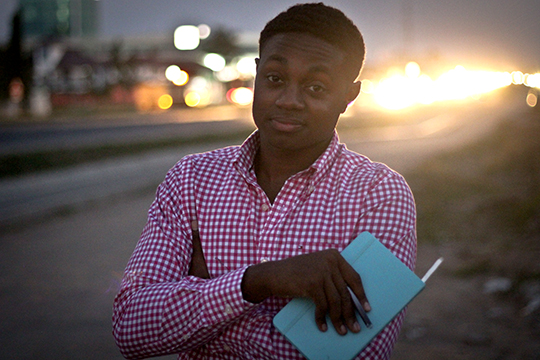
UNICEF Tanzania reflections
By Brandon Hill, ’16 (Public Policy)
This past summer, I served as an intern for UNICEF Tanzania as a Haas Center African Service Fellow. I helped to build a national social media campaign around violence against children called Ukuti Ukuti, filmed a United Nations documentary on early childhood education in Zanzibar, and assessed the impact of UNICEF programs in inland villages in Tanzania. Perhaps my most fulfilling experience was designing and launching UNICEF Tanzania’s first-ever Girl’s Empowerment Forum, partnering with other UN organizations to gather 50 primary school student-leaders to ask live questions of a panel of national policy makers and NGO leaders.
I had the opportunity to talk about development barriers with the leader of the opposition party in Tanzania, Professor Ibrahim Lipumba, Ph.D. ’83, who was also a co-founder of Stanford’s African Student Association in the 1980s. I also heard harrowing stories of leadership from Peter Temu, former economic advisor to the president of Tanzania, and listened to Romana, a young student, tell me how she single-handedly shifted gender norms in her rural village in the mountains of Iringa.
Having imbibed the Swahili culture and worked among the some of the most dynamic people I have ever met, I am energized about the future of East Africa and how I can play a role in its rise.
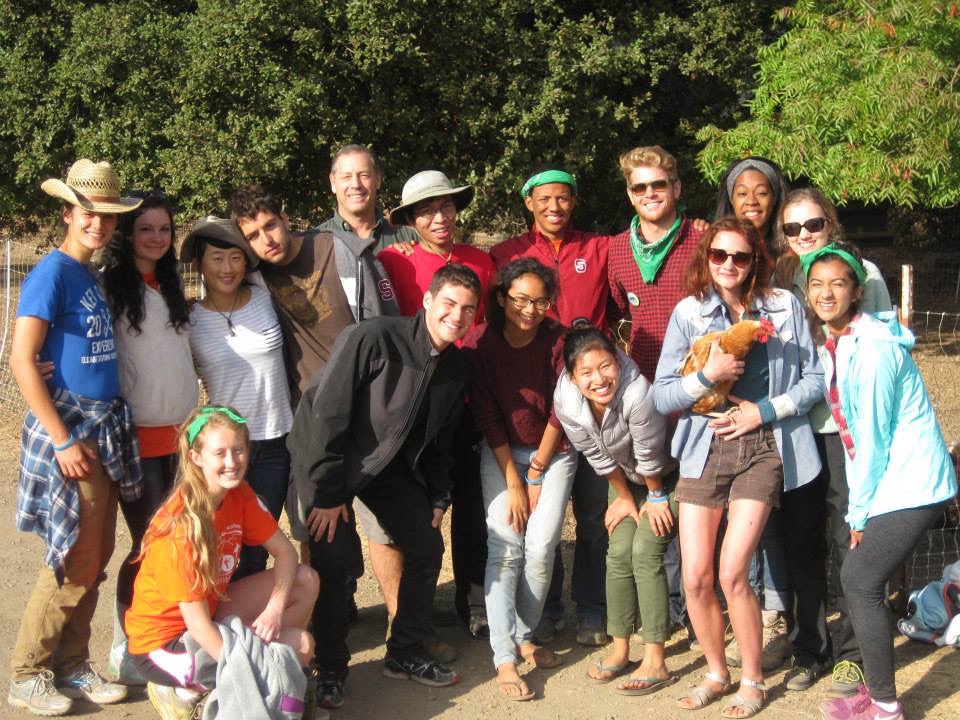
Food for filling
By Maria Deloso, ’15 (Earth Systems)
Growing food has an enormous impact on the environment, as around 40 percent of the world’s land goes toward agriculture. At the same time, obesity is a rising issue globally, partially as a result of more readily available cheap and unhealthy food options. When I began studying conventional and alternative food production systems, as well as what healthier meals might look like, it seemed to me that if people knew what was better for them and had the resources to do so, they would change for the better. However, this view failed to include issues of income inequality, racism, class, and worker and animal welfare.
While interning at the U.S. Department of Agriculture I was able to see the anti-hunger programs at work serving free government-subsidized meals to children in East Menlo Park. It was surprising to see that, even in Silicon Valley, some families were unaware of Federal food programs and others were sometimes unsure where their next meal would come from.
I ended up co-leading a Haas-sponsored Stanford Pre-Orientation Trip (SPOT) for incoming freshmen called, “Food and Social Justice.” Some of the trip’s activities included visiting a food justice organization planting community gardens and comparing two farmers’ markets targeting customers from differing socio-economic backgrounds, all while camping on a small, organic farm. It excited me to watch the SPOTlets engage with each experience and ask questions that I never knew to ask when starting out as a freshman. In addition, the SPOT trip gave me a space to continue reflecting on the many intersections between food and social justice and trying to better engage with my own privileged background — a constantly evolving process.
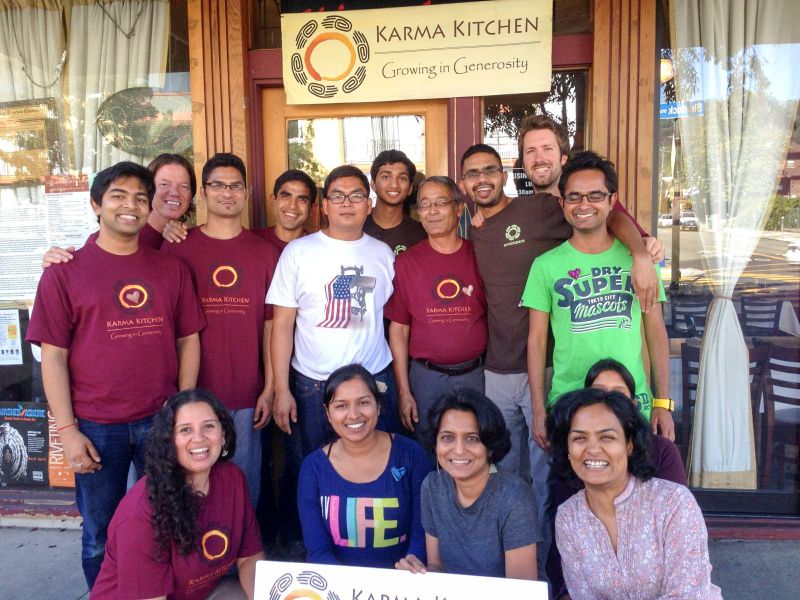
Kindness begets purpose
By Vishesh Gupta, ’15 (Computer Science)
When people hear I’m a CS major, they ask me what I did this summer expecting to hear about my late night coding exploits. When I instead tell them I spent the summer working with ServiceSpace, a group of wonderful people dedicated to generosity and kindness, I get quizzical looks. What does that mean? How do you practice kindness for a summer?
One of my favorite things was random acts of kindness. I started small, leaving flowers or a nice note encouraging people to pay it forward; one time my friends and I paid $70 between us for another family’s dinner at a restaurant. I realized that I was training my kindness muscles, and soon suggestions would come from somewhere inside me that the guy in a wheelchair would appreciate being pushed up the hill or a homeless person on the street could really use some lunch.
I experienced an inner transformation. I came into the summer lost and without purpose, living in a space of fear and stress that I wouldn’t ever “make it” in this seemingly cutthroat world. However, every smile I left behind for someone started changing my perspective — instead of acting from the fear of scarcity, I started seeing that the world was truly abundant — there was enough for everyone, and I just needed to trust in the generosity of others. Slowly, I recharged my soul batteries and I’m back now for what I hope will be a very different year of spreading kindness.
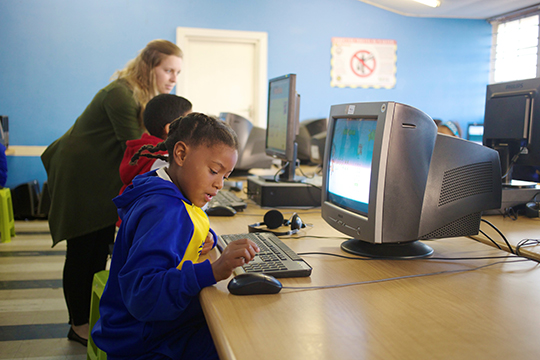
Computers to power learning in Cape Town
By Morgan Abbett, ’15 (Environmental Engineering, African Studies, and coterm M.S. Environmental Engineering and Science)
Across South Africa, mathematics test scores, secondary school matriculation rates, and youth employment rates are troublingly low. These statistics are, in part, the result of schools’ failure to teach students useful skills and provide personalized education. That is where computers can help. Through Stanford Engineers for a Sustainable World, I have worked for the past year to design a technology center at Parkwood Primary School in Cape Town, an underfunded public school that does not have a long-term computer space or program. Our team is working to build an effective, sustainable technology solution at Parkwood that will improve academic performance and propel students towards greater success in school and future employment. In addition to serving students, the center will provide computer access and training for teachers, parents, and other community members.
Thanks to an African Service Fellowship provided by the Haas Center, I spent several months in Cape Town designing the building, creating the program’s organizational model, teaching computer literacy classes, and working with our partners, an educational enrichment nonprofit called Bottomup, and a South African coding academy called iXperience. The next step is fundraising for the construction of the center. For more information please feel free to reach out to Stanford Engineers for a Sustainable World.
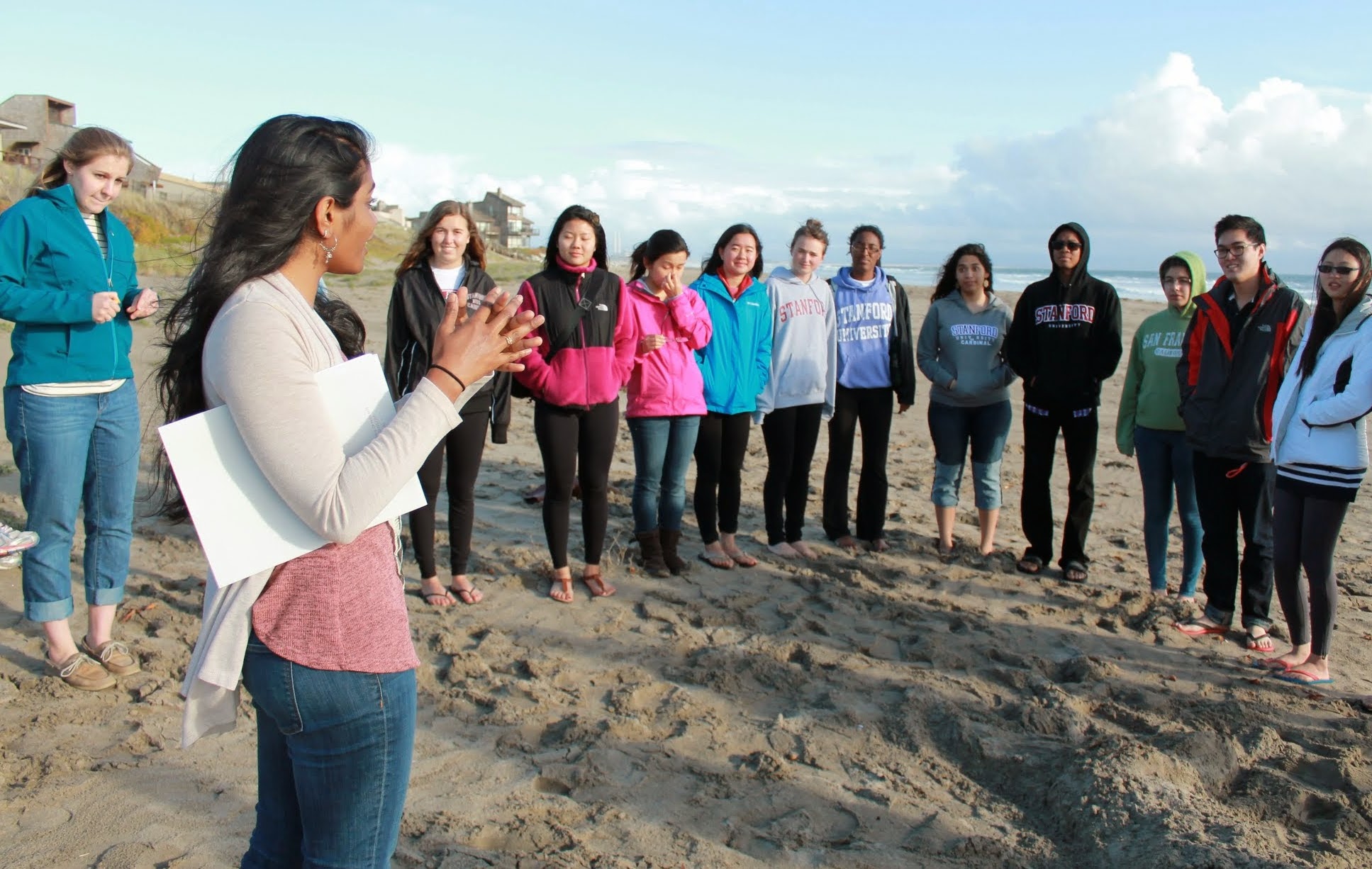
Opportunities, not obstacles
By Anisha Mudaliar, ’15 (Economics)
In February of my freshman year, I had a chance to sit around a table with former Senator Russ Feingold and other students in Stanford in Government (SIG) to discuss the US’s responsibility to engage in sub-Saharan Africa. As former Chairman of the Senate Foreign Relations Committee on African Affairs, Senator Feingold shared with us the nuances and challenges of US policy in Africa as we delved into case studies ranging from diplomatic efforts to create an independent South Sudan to the use of military force in Uganda. Through this experience, among many others with SIG—including hearing from global leaders like Kofi Annan and Al Gore—I have had the opportunity to gain deeper insights into the role of policy as a tool to effect change at a large-scale level.
SIG has exposed me to the intricacies of the policy-making process, not only through discussion seminars and speaking events, but also through real-world applications of my learning through a SIG Fellowship with the Reserve Bank of India (RBI). SIG has established a range of fellowships in public service and policy around the world in institutions like RBI, the California Department of Education, NYC Economic Development Corporation, and UN High Commission on Refugees. At the core of these opportunities is the belief that individuals—and especially young individuals like ourselves—have the power to engage with policy and wrestle with some of our world’s toughest challenges. SIG has encouraged me to see the enormity of these challenges not as obstacles, but as opportunities—opportunities to learn, work, and serve alongside others to contribute to a more just and sustainable world.
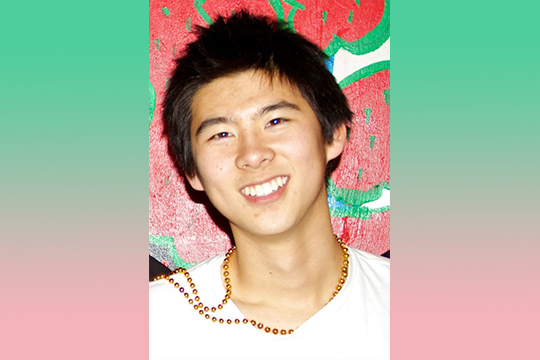
Technology with purpose
By Sean Wang, ’15 (Biological Sciences)
When I first entered college, I had virtually no concept of “social entrepreneurship,” let alone its role as a pathway of public service. My interest in the topic arose from a fortuitous introduction to the “social-e” sphere through the Compass Fellows program and Social-E Capital, an early-stage social venture competition. Soon I began exploring how the technical aspects of science and engineering can be effectively leveraged for service.
Over time, several classmates and I have coordinated Stanford4Good, a conference on social entrepreneurship that convenes science and engineering undergraduates with young Stanford alumni working in social impact. We also partnered with the Career Development Center to recruit more tech-oriented organizations to the Social Impact Career Fair. Multiple attendees at these two events have expressed their excitement around “technology with purpose” – a notion I hope will become the norm as more students gain STEM backgrounds. Now, after co-leading a Thanksgiving Back service-trip on the topic in the Bay Area, I am confident that the popularity of social entrepreneurship on campus will continue to grow. I hope we may disrupt the traditional career mind-set of many STEM majors and encourage them to consider working in the social sector – an area in which their perspectives and skill sets potentially have much to contribute. I look forward to witnessing the social innovations that students at Stanford will dream up!
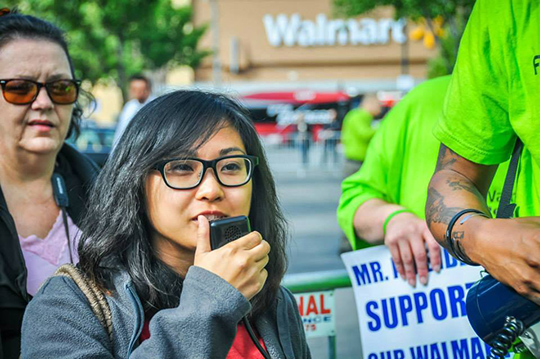
“I am more than a slave.”
By Katherine Nasol, ’15 (International Relations)
“I am more than a slave.” A year ago, I spoke with a Filipina teacher who was trafficked to work in a small private day care near Washington DC. She and many others were illegally recruited from the Philippines, coerced to live in cramped quarters, and trapped in a cycle of debt bondage. She said these exact words to describe her current experience in the US.
Her story is not uncommon, as many migrant workers have left because of inequality and lack of employment in their home countries. When many migrants come to their destination, they are met with discriminatory laws that abuse and exploit them and their families. Although this phenomenon is happening globally, there are also many migrant workers who are speaking up and mobilizing against oppressive policies and conditions. I have had the privilege to learn and work with migrant community organizers both here in my home in the Bay Area and internationally. By organizing with grassroots groups and seeing them push for change day by day, I have learned that justice can only be achieved by those who are affected themselves.
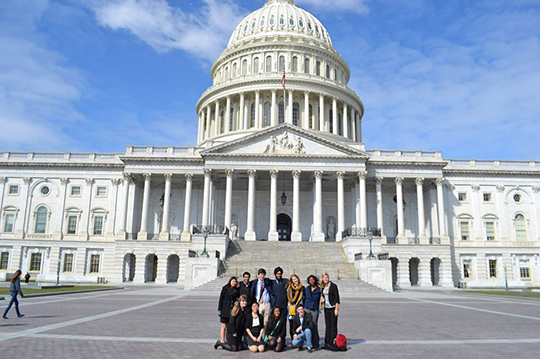
Lobbying for human rights
By Jared Naimark, ’14 (Earth Systems)
In 2013, I led an Alternative Spring Break (ASB) trip to Washington D.C. After teaching a 10-week course to 12 fellow undergraduates on international human rights advocacy with my co-leader Emily Witt, we set off for a week-long exploration of our nation’s capital. We met with eight different nonprofit advocacy organizations and one government agency and engaged their staff in provocative discussions centered around the question: How can we get more people to care about international human rights and take action without oversimplifying the causes of or solutions to violent conflict?
With these discussions in mind, our group set off for Capitol Hill. We were nervous and tired, and most of us had never been in a lobby meeting before. But we put on our best clothes, reviewed our notes, and stepped into the congressional offices with confidence. We asked for the US to cut military aid to Rwanda which had been supporting abusive insurgent groups in Eastern Congo, and also asked for human rights benchmarks to be met before the US resumed military to military relations with Burma’s armed forces. After these lobby meetings, our trip was over, but our group’s commitment to transforming human rights advocacy was just beginning. Empowered by the notion that elected officials would actually care what a group of college students thought about human rights, our group was inspired to take what we learned on our trip and apply it to a diverse range of public service causes and pathways.
